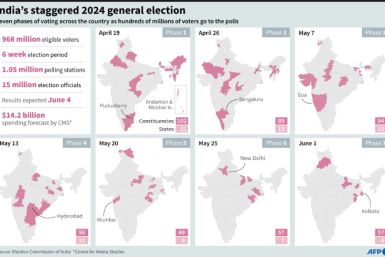Electric Cars and Platinum Mines
Never mind. We were wrong about everything. Stay bullish and carry on.
Just kidding. The world's financial system is still on track for a reckoning. We just don't know if it will be another 10 years of Japan-like zombie land...or something more sinister and sudden.
Your editor is in Sydney this morning, preparing to fly over to South Africa for business. But we bought an old fashioned newspaper last night down by Circular Quay. We kept one eye on the squawking seagulls dive bombing the pie crumbs at our feet. The other eye was on China's economy.
China's exports increased by 9.9% in September versus the same time last year, according to official data released by Beijing. This will calm some fluttering hearts in the Pilbara, where marginal iron ore producers are just starting to breathe easy again. Iron ore prices have rallied since their low on September 5th. With the bullish export data, China must surely be importing more as well, right?
Correct! Imports were up 2.4%. It's a smaller gain than exports. But it's back to the old model the world knows and loves: China makes, the world takes, and the resulting surplus is invested back into US Treasury bonds and notes. Australia loves this old model because if China is making it's also taking commodities, many of which are mined right here in the Lucky Country.
Our mate Greg Canavan warned us last week to expect a barrage of 'good news' in the next few months. Greg reckons the rebounding iron ore price, and now the positive export data from China, and probably a 'better than expected' GDP figure on October 18th from Beijing, will cause investors to let their guard down under the belief that Australia has dodged a bullet.
We won't steal his thunder, though. He's had enough of waiting for the government's White Paper about Australia in the Asian Century and written his own. Look for it soon.
There's a Nissan Leaf parked in the lobby of our hotel. We tried to stomp on it and crush it like an aluminium beer can while the concierge was looking away. But the all-electric car is surprisingly sturdy. It practically oozed graphite and lithium. Have a look.
Having grown up going to the grocery store in the back of a Chevy Impala, we always worry that this next generation of cars will always come off second best in accidents. You don't see a lot of steel in that there beauty. But the Leaf is not as easy to crush with your foot as it looks. This leads us to believe that Dr Alex Cowie may be on to something with his latest investment theme.
Alex didn't touch iron ore in its big run up. Instead, he's been looking for the companies that make the less-famous-but-just-as-important elements that go into modern technologies like the all-electric car. Watch his expose on the 'Blood Battery' and you'll see what the excitement is all about.
As colourful and cute as the Leaf is, and as resistant to our boot as it proved, we still have questions about the next generation of electric cars. Battery storage is really the key. But let's not forget the 'electric' part.
Electricity has to come from somewhere. Right now, that somewhere tends to be a turbine that's spun by steam generated from heat that came from burning fossil fuels like coal and natural gas. In other words, the electric car still runs on hydrocarbons, just a few steps removed.
Until battery storage improves by leaps and bound, or until renewables get a lot more efficient and reliable, the streets of Sydney will not be strewn with quietly humming Leaves. (Or is it Leafs?) Still, battery technology is advancing, which is the whole point of Alex's 'Blood Battery' report.
One of the other metals that always comes up when you're talking about cars is platinum. Catalytic converters which reduce noxious emissions form internal combustion engines are a big source of demand for platinum. The chemistry of the catalytic converter is fascinating, but beyond the scope of today's Daily Reckoning.
We mention platinum because it's a precious metal. That means it's hard to find. One place you find a lot of it is in South Africa. But South Africa also finds itself in the middle of a big mining dispute. The strikes at some of South Africa's biggest platinum mines have already triggered a worry about supply, which in turn has triggered a 24% rise in spot platinum prices since mid-August.
Source: kitco.com
Our old friend Byron King is going to meet us in Johannesburg later this week to tour some of the gold and platinum mines in South Africa, to see what's going on first hand. The mine site visits have been organized by our South African colleague Francois Joubert, who used to work in the mining industry. We'll report back what we find. But it will be a few days.
Regards,
Dan Denning
for The Daily Reckoning Australia






